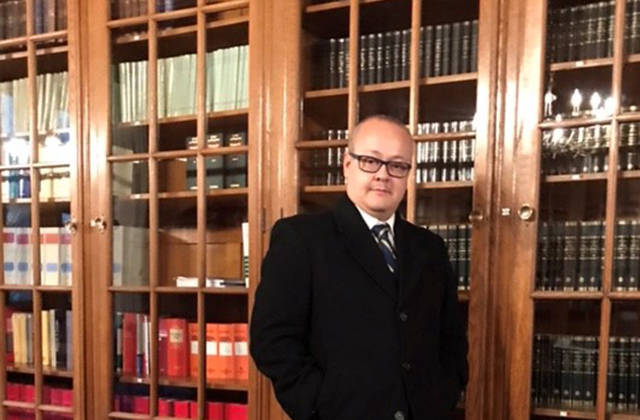Marking the 70th Anniversary of the Universal Declaration of Human Right: What’s Next?

I was having a nightmare, so I woke up and discovered that reality is worse than a bad dream. (Bergman – The Egg of the Serpent).
December 10 marked the 70th anniversary of the Universal Declaration of Human Rights. As a result of the intense job and campaign enforced by Eleanor Roosevelt (USA), René Cassin (France), Peng-Chan Chung (China), John P. Humphrey (Canada) and Hernán Santa Cruz (Chile), the Universal Declaration of Human Rights established universal that serves a ground for the world to recognize a common and universal platform for dialogue, reflected by 30 human rights and, at least theoretically, could avoid new tragedies such as the two world wars (1914-1918 and 1939-1945).
Although the Declaration was not characterized as a binding international legal instrument, it is known that it presents “jus cogens” and international customary law fundamental principles. Fortunately, its list of rights has expanded significantly to such an extent that, one might say, the classic image of Eleanor Roosevelt reading the Universal Declaration of Human Rights on a large print page would now certainly require a larger one.

Even though 70 years have passed since the adoption of the Universal Declaration of Human Rights, it yet has not succeeded in becoming a major important established achievement of the world civilization after the Nazi rule period and the Holocaust, the Armenian Genocide and the colonization and indigenous massacres in the Americas, Africa and Asia. There is no doubt about that. The central question debated around the declaration and the elephant in the room remains its effectiveness: besides its validity, does it really work? Does it recognize past atrocities and prevent new ones from happening?
Cataclysms such as the Korean war, ones in Vietnam, Cambodia, Rwanda, Bosnia, Sudan and, more recently, Myanmar; ones such as terrorism and poverty, lack of literacy, medicines, access to education, child soldiers, modern slavery, violence against women, against children and teenagers, racism and human trafficking, lack of access to clean water and destruction of the ecosystem, forced migration and refugees, among other humanitarian issues, highlight the fact that more could have been prevented if more was recognized and educated.
A mere document by itself does not have the capacity to make a big change against human oppression and despair. The application of the Universal Declaration depends on spheres of politics of states, their commitment to those values, which in their turn would produce education and training prioritizing human values for the formation of a mentality to make such positive changes. From the point of view of international relations, usually the minimum common platform established by the Declaration is not a priority when it comes to geopolitical interests. This phenomenon occurred in relation to the United Nations Convention on the Prevention and Punishment of the Crime of Genocide (1948), which also marked its 70th anniversary on December 9th, when economic, geopolitical and local political interests in Rwanda not only allowed the commitment of one of the most terrible genocides in the history of humanity, but also allowed many leading perpetrators to escape unpunished.
The International Criminal Court has been subjected to multiple attacks in the form of criticism by countries that suffered by the rulings and of the mentioned court and the way cases were handled, as a form of protest against the efficiency of that court. The universal model, which marks the essence of the septuagenarian declaration, used to work in the postwar period, however, nowadays it seems not to be working as it was supposed to do – the entire structure that was more or less stable was shattered by certain cases of resurgence of nationalist and fascist political movements and parties in certain countries, Brexit and Russia’s exit from the International Criminal Court, as well as by the rise of populistic political powers that oppose to human rights, putting democratic systems at risk. All these changes affect the vision and undermine the values of the Universal Declaration.
Notwithstanding agendas of political powers and populistic support, human rights compose a civilizational agenda that can not be held hostage by ambitions of authoritarian and dictatorial political parties that oppress the rights of women and minorities. The practice of elimination of the “other” in certain political systems of the world these days is not acceptable, and this is the line between debate and barbarism that should not be crossed. Thus, acts that are against the rights of religious minorities, indigenous people and sexual minorities that are not putting at par with the rest of their societies should be fought all over the world, if we want to respect human rights in complex but not selectively. Educational processes should educate children and young people around the world about the danger of the feeling of superiority of human groups over others, which also include discrimination of minorities. The “serpent will always seek to get out of the egg”.
For new tragedies not to happen again, chanting “never again” will not help; it takes more than that – it takes real commitment to all human rights values, with no exception, established the Human Rights Charter of 1948.
Destruction of democracy, and eventually its consequences for human beings are silent and devastating. The human rights that arise from the Universal Declaration must be carried out in each street and district of all countries to make the world a better place, if we don’t want to awake from a nightmare and find ourselves in a worse reality.
2018 marked historical change and transition in Armenia that resulted in a new political system in the country after a revolution and change of government. This is an opportunity, which, if used wisely, can become a golden opportunity for Armenia, or, if not, consequences may be disappointing, resulting in even more emigration from the country. As the Armenian people embraced democratic values and bid for democratic change by bringing a new government to power through revolution, now it is time for the Armenian people to reform its society and walk through the path of development. For Armenia to develop through the path of democracy, its society should embrace the democratic and human rights values that allow everyone to be free and happy under the protection umbrella of its state, notwithstanding people’s gender, sexual orientation and ethnic background – ultimately, human rights cannot be applied selectively, and inclusiveness is the key to a happy society.
Flávio de Leão Bastos Pereira & Kamo Mayilyan
Flávio de Leão Bastos Pereira (PhD)
Professor of Human Rights and Constitutional Law – Mackenzie Presbyterian University, São Paulo (Brazil).
Member of the Roster of Experts of the International Nuremberg Principles Academy.
Egress of the International Institute for Genocide and Human Rights Studies – IIHRGS (University of Toronto / Zoryan Institute – Canada).
Associated to the International Association of Genocide Scholars (IAGS).
Visiting Professor at the Department of History of the State University of Campinas (UNICAMP), Brazil.

























